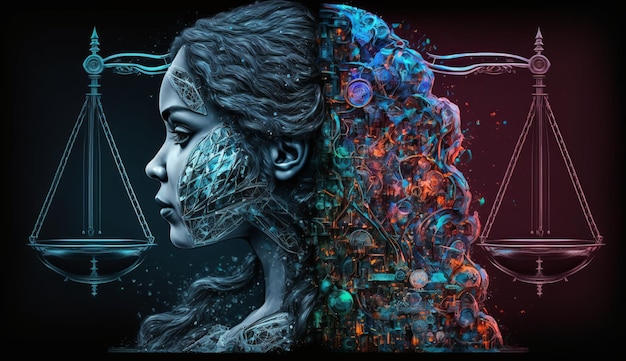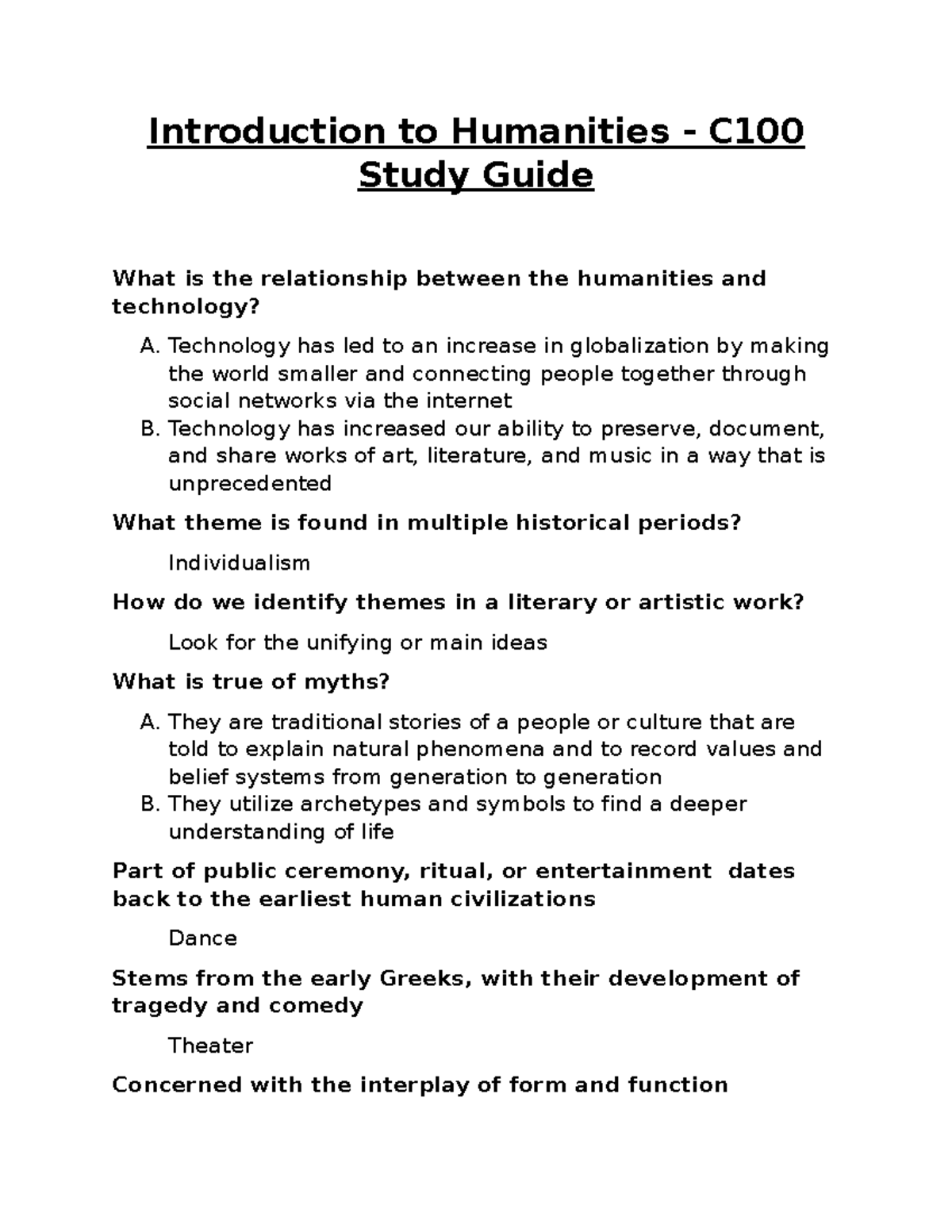AI and social justice are at the forefront of contemporary discussions about the future of technology and its impact on society. As noted by Ruha Benjamin, a prominent sociologist and advocate for social equity, the rise of artificial intelligence presents both opportunities and challenges in the pursuit of a more just world. While many tech leaders tout AI as a transformative tool for innovation and efficiency, Benjamin warns that these same technologies often perpetuate systemic inequalities, particularly against marginalized communities. The intersection of arts and humanities with technology is essential, as it fosters creative thinking that can lead to more equitable solutions. By engaging in dialogues that combine ethical considerations with technical advancements, we can envision a future where AI contributes positively to social justice rather than exacerbating existing disparities.
The interplay between AI and social equity raises critical questions about how technology shapes our societal structures. This exploration extends beyond mere technical advancements, inviting scholars and activists to imagine a future where digital innovations serve the collective good rather than just elite interests. Ruha Benjamin emphasizes this need for a holistic approach that integrates insights from the arts and humanities, promoting a richer understanding of the ethical implications of AI. In this era of rapid technological evolution, the call for creative thinking is paramount; we must envision alternatives that prioritize fairness and inclusivity. By approaching these discussions through various lenses, we can forge pathways that ensure technology uplifts all members of society.
Reimagining Technology: A Call for Social Equity
In the discourse on technology’s future, social equity must be at the forefront of our considerations. As Ruha Benjamin emphasizes, the sheer ambition of tech elites to craft a new world often overlooks the implications for marginalized communities. Rather than blindly trusting the narratives spun by these billionaires, we need to prioritize the voices of those who are typically sidelined in discussions about advancements in artificial intelligence (AI). By doing so, we can ensure that the technologies we embrace are not just innovative, but equitable, fostering a future that is accessible to all.
The contrast between imaginative technological futures envisioned by the privileged and the lived realities of disadvantaged communities necessitates a reevaluation of our priorities. When we envision the future, it should not solely consist of AI-driven efficiency or breakthrough innovations in superintelligence. Instead, we must ask: how do these technologies affect social equity? By integrating perspectives from the arts and humanities into our technological discussions, we can cultivate a more inclusive future that celebrates creativity and collaboration over mere computation.
The Role of Arts and Humanities in Shaping the Future
Ruha Benjamin’s call for creative thinking through the lens of arts and humanities highlights the urgency of rethinking how we approach technological development. In an era where calculations and algorithms dominate decision-making, Benjamin argues for a paradigm shift. The integration of arts and humanities can provide the social and historical depth that current technological narratives often lack. Understanding the human experience through creative expressions allows us to envision technologies that enhance well-being rather than perpetuate harm.
Moreover, this interdisciplinary approach is crucial to developing critical thinkers capable of navigating complex societal issues. By fostering environments where creativity thrives, we can challenge the status quo and propose radically different paths forward. As we explore the intersection of cultural insights and technology, we will be better equipped to design solutions that address not only the technical challenges of AI but also the ethical and moral dilemmas it presents in our society.
AI and Social Justice: Bridging the Gap
The conversations surrounding AI and social justice are particularly poignant in the wake of Ruha Benjamin’s insights on the need for equitable technological development. By highlighting how AI systems can exacerbate existing societal injustices, we recognize that the current trajectory of technology often serves the interests of those in power rather than the community at large. Therefore, it is imperative to establish frameworks that center social justice in the innovation process, ensuring that AI solutions actively contribute to dismantling systemic inequities.
One way forward is to engage diverse stakeholders in the development and deployment of technology. This includes not just data scientists and engineers, but also community organizers, activists, and artists who understand the complexities of social dynamics. Through collaborative efforts, we can create AI applications that are sensitive to the nuances of human experience, ultimately fostering more just outcomes. The dialogue must go beyond technical discussions; it must include the voices advocating for a more equitable society, ensuring that technology serves as a tool for liberation, not oppression.
Dismantling Barriers: Imagining a New Future
Benjamin’s vision invites us to dismantle the mental barriers that limit our imagination when it comes to envisioning the future. We often find ourselves caught in a cycle of pragmatism, where the possibilities appear stifled by what we perceive as the ‘realistic’ constraints of our current society. However, to foster true innovation, we must liberate our thinking and embrace the radical potential that lies beyond conventional boundaries. Imagining a world devoid of systemic issues like surveillance and dominance requires us to think creatively and critically about what we want technology to achieve for everyone.
This call to imagination extends to all realms of society, particularly within educational institutions. By encouraging students to think beyond current limitations and engage deeply with both technical and non-technical fields, we prepare a generation capable of transformative thought. To envision a future beyond the status quo, we must advocate for educational models that nurture diversity in thought, creativity, and critical engagement, contributing to a more just and equitable technological landscape.
Critique of AI Narratives: Beyond Technocracy
Critically analyzing the narratives surrounding AI, especially those promulgated by elite tech figures, reveals a troubling gap between their lofty ambitions and the detrimental impacts on vulnerable communities. Ruha Benjamin articulates this disconnect, urging us to question the premise that technological progress is inherently beneficial. Many AI technologies, framed as advancements in efficiency, often reinforce systemic oppression rather than alleviate human suffering. It’s crucial to scrutinize these narratives and their implications on societal structures to ensure that technological developments truly serve the collective good.
A technocratic outlook, which views human challenges through a purely computational lens, risks ignoring the social dynamics that inform and influence our human experiences. To foster a more inclusive narrative surrounding AI, we must engage with interdisciplinary approaches that incorporate insights from various fields. By doing so, we can dismantle the dominant technocentric narratives and instead create a discourse around technology that prioritizes human dignity, ethical considerations, and social responsibility.
Envisioning Public Goods in a High-Tech World
The current emphasis on AI and technological advancement often sidelines essential social goods, such as public transportation and affordable housing. Ruha Benjamin’s assertions challenge us to think critically about what is labeled as ‘innovative’ in society. Empirical evidence suggests that investments in public infrastructure and services have far-reaching benefits for communities, yet these are too frequently dismissed as impractical in favor of futuristic, yet realistic tech solutions. It is time we redefine what innovation means, broadening our understanding to include vital public goods.
By prioritizing public investment alongside technological development, we create a more harmonious society where progress is not merely defined by advancements in algorithms but by the well-being of its citizens. Emphasizing social equity within tech discourse means advocating for policies that support communal resources, ensuring that the future benefits all, not just a privileged few. As we navigate through the challenges posed by AI, we must boldly reclaim the narrative that social goods are not just a relic of the past, but rather foundational to a forward-thinking society.
The Interconnectedness of Creativity and Technology
The relationship between creativity and technology is a reciprocal one, as highlighted by Ruha Benjamin. Emphasizing the need for creative thinking in the face of technological advancement, we find that true innovation arises when artistic imagination meets scientific inquiry. Whether through literature, visual arts, or performing arts, creative expressions can help to visualize potential futures and critique existing systems. Integrating these disciplines into technological development enriches the strategic planning process, enabling us to approach problem-solving from various angles.
Further, cultivating creativity within technological fields paves the way for innovative solutions to arise amid complex social issues. The arts provide a unique lens through which we can examine human needs—enabling us to design technologies that empathize with and address these needs. Ultimately, by fostering an environment that encourages collaboration and cross-pollination between the arts and technology sectors, we are more equipped to create holistic solutions that advocate for social change and equity.
Ethics in Tech: A New Paradigm
In the intersection of ethics and technology, Ruha Benjamin calls for a thorough reevaluation of how human values are integrated into innovation processes. The ethical implications of AI often come under scrutiny, particularly when the benefits appear to be skewed towards dominant social groups while neglecting those historically marginalized. Therefore, a new paradigm is essential—one that not only recognizes the importance of ethical considerations but actively integrates them into every layer of technology design and deployment. This ethical grounding must involve dialogues that include diverse perspectives, especially from those who have been adversely impacted by these technologies.
By creating ethical frameworks that prioritize human rights and social justice, we can ensure that technological advancements work towards the common good rather than perpetuating harm. This requires norms that emphasize transparency, accountability, and the necessity for ethical reviews in AI development. As we navigate the uncharted waters of emerging technologies, aligning our actions with ethical imperatives will foster a tech landscape that uplifts all members of society.
Empowering Marginalized Voices in Technology
A crucial component of creating an equitable technology landscape is empowering marginalized voices to participate in discussions surrounding AI. Ruha Benjamin’s work serves as a reminder of the need for inclusivity in technology development. Throughout history, the narratives of those in power often eclipse the experiences and expertise of marginalized groups, leading to solutions that fail to address or even worsen their concerns. Thus, we must actively seek out, listen to, and integrate these voices into the tech discourse to ensure that the solutions developed are truly reflective of society’s needs.
This empowerment starts with creating platforms that enable diverse representation in technology fields—participating in decision-making processes, contributing to problem-solving, and shaping the future of AI. Collaborations that bridge community engagement with tech development can facilitate a more dynamic exchange of ideas. Enabling marginalized communities to participate fully in the technology narrative not only enriches the discourse but also enhances the development of equitable solutions that benefit all sectors of society.
Frequently Asked Questions
How does AI relate to social justice in the context of Ruha Benjamin’s work?
Ruha Benjamin highlights that AI technologies often perpetuate systemic inequalities under the guise of efficiency and progress. In her discussions, she argues that without a focus on social equity, AI can reinforce oppression, especially against marginalized communities. Benjamin calls for a critical examination of AI’s role in society and emphasizes the need for diverse voices in its development, advocating for arts and humanities to inform ethical AI design.
What are the potential dangers of AI technologies according to Ruha Benjamin?
Ruha Benjamin warns that AI technologies, such as facial recognition and automated decision-making systems, can lead to harmful outcomes like false arrests and biased healthcare access. She stresses that these technologies often prioritize algorithmic efficiency over human welfare, thus reinforcing existing societal injustices instead of alleviating them.
Why does Ruha Benjamin advocate for creativity in the discussion of AI and social justice?
Benjamin advocates for creativity in the dialogue surrounding AI and social justice to inspire transformative thinking about technology’s role in society. She posits that moving beyond conventional ideas allows for reimagining systems to prioritize human needs, equity, and community welfare instead of solely focusing on technical capability.
How can arts and humanities contribute to AI development towards social justice?
The integration of arts and humanities into AI development can foster a more holistic understanding of societal impacts, ensuring that technologies are designed with empathy and social awareness. Ruha Benjamin argues that diverse forms of knowledge are essential for creating equitable AI systems, pushing for creative solutions that consider historical and cultural contexts.
What vision for the future does Ruha Benjamin propose regarding AI and society?
Ruha Benjamin envisions a future where technology serves collective good rather than self-interest. She encourages rethinking prevailing narratives around AI, advocating for systems that prioritize human dignity, equity, and creative thinking while dismantling oppressive structures like surveillance and policing.
Why is it important to critique current AI technologies from a social justice perspective?
Critiquing AI technologies from a social justice perspective is vital to ensure that innovations do not perpetuate existing inequalities or create new forms of oppression. Ruha Benjamin emphasizes that without such scrutiny, tech solutions may favor the interests of powerful stakeholders rather than advancing social equity for all.
What challenges do marginalized communities face regarding AI applications?
Marginalized communities often encounter bias and discrimination through AI applications, which can lead to disproportionate negative impacts such as surveillance, misidentification, and unequal access to resources. Ruha Benjamin’s work sheds light on these challenges, advocating for inclusive design processes that consider the needs and perspectives of all societal members.
| Key Point | Explanation |
|---|---|
| Radical Imagination | Ruha Benjamin argues for reimagining futures instead of fearing dystopias, suggesting a need for collective envisioning beyond tech monopolies. |
| Critique of Tech Elites | She criticizes the reliance on tech elites who promote AI as altruistic while acting in self-interest. |
| AI and Social Justice | Benjamin highlights the danger of AI replicating social inequalities and urges for the inclusion of social perspectives in technological discussions. |
| Need for Diverse Knowledge | She calls for varied expertise in technology development to ensure it addresses societal issues effectively. |
| Value of Arts and Humanities | Benjamin encourages a shift in educational priorities towards arts and humanities to foster creativity alongside technology. |
| Imagination Beyond Limits | She invites thinkers to imagine systems that dismantle oppression instead of just minimizing harm, advocating for a holistic rethinking of societal structures. |
Summary
AI and social justice intersect at a crucial juncture where technological advancements must be critically assessed to ensure they serve the greater human good. Ruha Benjamin’s insights encourage a reexamination of who shapes our futures and how we can utilize creativity and social awareness to challenge oppressive systems perpetuated by AI technologies. This dialogue not only underscores the importance of diverse voices in tech development but also emphasizes the potential for a more equitable future when we collectively envision alternatives to current paradigms.



